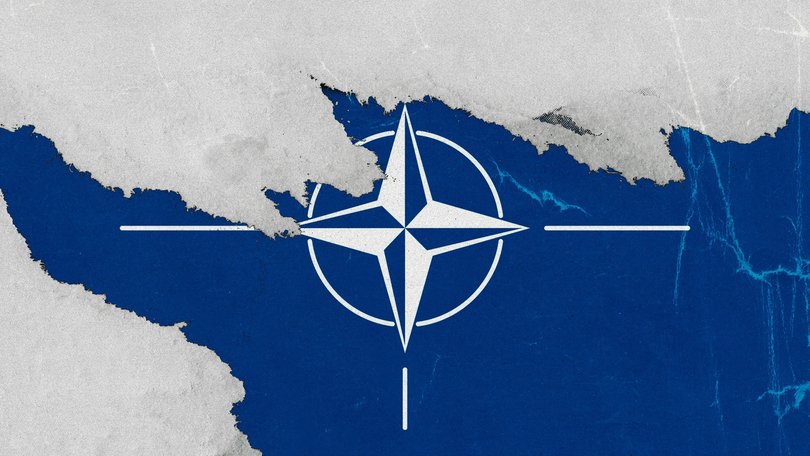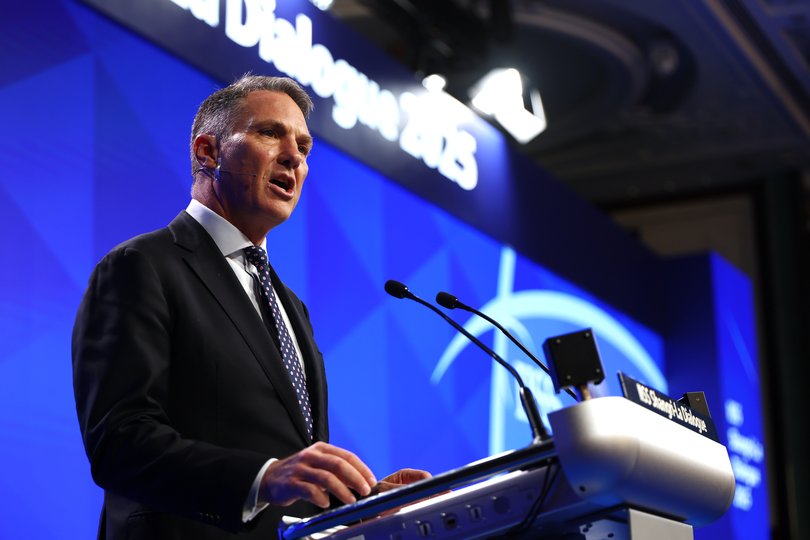Indo-Pacific leaders skip NATO, leaving New Zealand’s Christopher Luxon in the cold
NATO chief Mark Rutte has backed Indo-Pacific countries upgrading their militaries, as Japan’s leader pulled out of attending, reportedly due to a clash with the US about pressure to raise defence spending.

NATO chief Mark Rutte has backed Indo-Pacific countries upgrading their militaries, as the leader of Japan pulled out of attending the NATO summit, reportedly due to a clash with the Americans about being pressured to raise defence spending.
Japan’s Prime Minister Shigeru Ishiba pulled out of flying to the Netherlands for the summit that begins on Tuesday.
Japanese press said he was reportedly unhappy about being pressured by the Americans to raise defence spending to 5 per cent of GDP, in line with Europe.
Sign up to The Nightly's newsletters.
Get the first look at the digital newspaper, curated daily stories and breaking headlines delivered to your inbox.
By continuing you agree to our Terms and Privacy Policy.With South Korea’s prime minister and Anthony Albanese previously deciding to boycott the summit, it leaves New Zealand’s Christopher Luxon as the only leader from the so-called elite club of the Indo-Pacific 4 countries who will show up to the gathering in The Hague.
Mr Rutte brushed aside the absence of all but one Indo-Pacific leader invited to his first NATO summit as Secretary General when questioned by reporters.
“We will have very senior representatives here,” he said at a pre-summit press conference.
“In summits like this that a program changes from day to day a little bit. But I would not read too much into it.”
Australia is not part of NATO, the North Atlantic Treaty Organisation. But for the past four years, Australia, South Korea, Japan and New Zealand have been invited to attend NATO summits at the prime ministerial level, to help co-ordinate responses to joint threats, such as cyber hacking from China and her authoritarian associates, North Korea, Russia and Iran.
Australia is sending Defence Minister Richard Marles in lieu of the Prime Minister, who previously said he would attend NATO if it did not clash with domestic concerns like Parliament, which is not sitting this week.

It was unclear what high-level meetings Mr Marles would have, and speaking in London on his way to the Netherlands, Mr Marles could not confirm any engagements.
“I’m not about to speculate on what meetings I have at NATO,” he said.
“I’m really looking forward to the meetings at NATO.
“We’ll work up our program of meetings, which go alongside the main NATO meetings, and we’ll take it from there.”
Opposition Leader Sussan Ley said Mr Albanese should be reconsidering his decision to skip NATO, given the global instability.
“Now is the time for Australia to stand with the United States, and other allies and like-minded countries,” Ms Ley said.
“Anthony Albanese should be taking every opportunity to do so.
“We are encouraged by reports that President Trump may be seeking meetings with IP4 nations, including Australia, at NATO, and we continue to urge Prime Minister Anthony Albanese to attend.”
NATO members are poised to adopt a new baseline target of spending 5 per cent of GDP on their defences. This would include 3.5 per cent on core defence needs like weapons and paying members of the military, and an extra 1.5 per cent that could be put toward associated programs, including upgrading roads so they can carry heavy military vehicles and equipment.
Asked by The Nightly if he advised Indo-Pacific governments to raise their defence spending in line with the new target to be adopted by the bloc over the next two days in the Hague, Mr Rutte backed the sentiment.
“I’m already very glad that as an Alliance we will decide, most likely on Wednesday, and there is an agreement in the North Atlantic Council on this, to move to, to get to this minimum of 5 per cent of defence spending,” he said.
“And I think that’s great news to deliver all the targets we have set ourselves.
“And of course, I would not be against our friends in other parts of the world spending more, but for me, then to have an active goal on this, I think, is not befitting my position.”
Mr Rutte said NATO was very worried about a “situation in Taiwan” and the ability of China’s President Xi Jinping and Russia’s leader, Vladimir Putin to work together to distract and drain the West.
“There is a risk that if the Chinese will try anything with Taiwan, that no doubt he will call his junior partner, Mr Putin, and make sure that the junior partner in that relationship with China, Mr Putin, will keep us busy here, if that would happen,” Mr Rutte said.
“That is one of the reasons why we have to stand ready, and we cannot be naive.
“We have to be clear on this, and that is why that extra defence spending is so important.
“That is why NATO does not have an Alliance opt-out, side deals, etc, because we all have to chip in.”
The Trump Administration has been instrumental in forcing Europe to lift its game on national security.
In 2014, NATO members pledged to meet a 2 per cent defence spending baseline but barely had met the promise when Mr Trump was first elected in 2016.
The 5 per cent target to be pledged in 2025, at Mr Trump’s first NATO since being re-elected, will be subject to reviews starting in 2029.
Spain, which has asked for an exemption to the pledge, is also to be subjected to such a review in the likelihood that they will fail to meet their capability targets if they spend at current levels of 2.3 per cent of GDP. This is roughly the amount the Australian government spends on defence.
Pentagon official Elbridge Colby, who is overseeing the review into AUKUS, has repeatedly called for Indo-Pacific countries, including Japan, to lift their defence spending.
And Pete Hegseth, US Defence Secretary, has also called for allies in the Indo-Pacific to match Europe’s new defence stance.
But Bryce Wakefield, CEO of the Australian Institute of International Affairs and a specialist in Japanese politics, said the pressure on Tokyo could be unbearable, as Japan had already defied its own pacifist past to shoulder more of the burden.
“GDP ratios have historically been central to the debate on defence spending in Japan, with a one per cent cap tied to the nation’s postwar anti-militarist identity for many decades,” Dr Wakefield said.
“To raise that amount to two per cent, as Japan has committed in recent years, is a big deal for Tokyo.
“No wonder Ishiba is irritated by the pressure he is coming under to go higher.
“The US strategy on pressuring allies with a one-size-fits-all approach may work with NATO, where there is a hot war near the eastern flank and a history of European nations coordinating on policy, but it’s less effective against the individual countries of the Indo-Pacific, which have different and specific political contexts within which they must operate.”
Evan Feigenbaum of the Carnegie Endowment, a former Deputy Assistant Secretary of State, says that the US decision to go public with its demands could backfire.
“Surveys show that Trump is not popular in either Australia or Japan, so Albanese and Ishiba lose little politically by pushing back,” he said.

